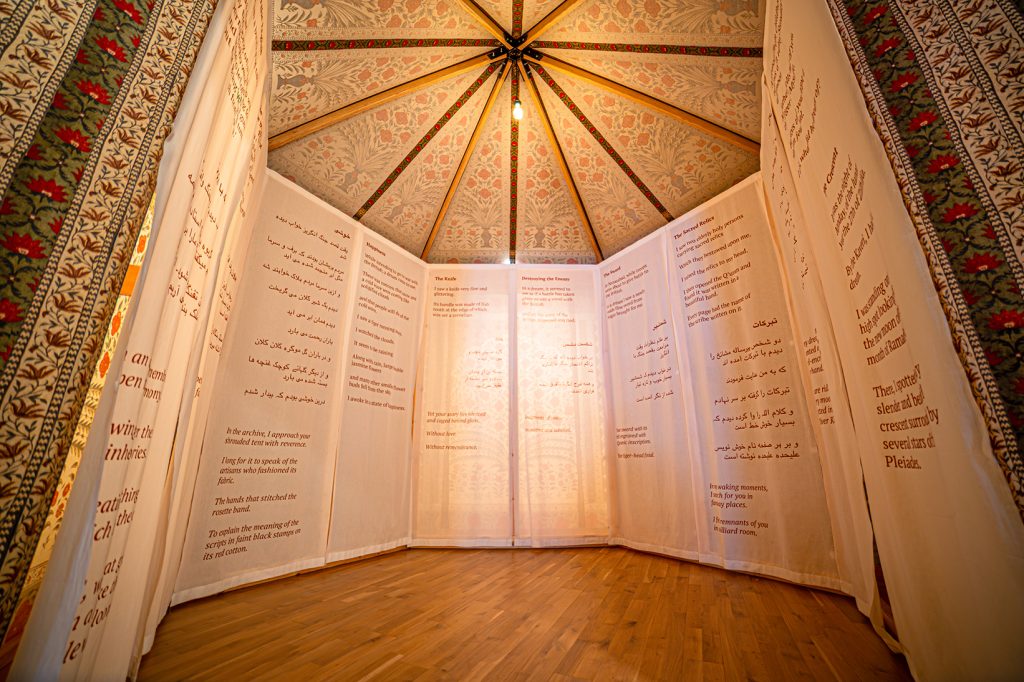
Reclaiming stories and spaces
“How do museums tell stories? What do we leave out? How was/is power used?” These are some of the key questions at the heart of Khawaab Mahal and Absent Presence, two works by artist and writer Nasia Sarwar-Skuse, commissioned and co-created with Ways of Working, an arts and community platform for social change.
Both pieces started their journey in South Wales and they grew through exploring collections at National Museum Wales and Powis Castle and engaging with communities in Cardiff. The result is a powerful response to Welsh, British and global histories of empire.
Owen Griffiths from Ways of Working describes the ongoing collaboration, “We started working with Nusrat at Manchester Museum as our critical friend, helping us work with the staff and the community to kind of look at ideas of best practice that the South Asian Gallery has. Pioneered through community collaboration and community curatorial groups.” This partnership reflects a deep dialogue around how museums can become spaces of genuine community involvement.
Reflecting on the impact of displaying the work in Manchester, Owen adds, “That’s a relationship that’s built on that dialogue.” But the bigger question remains. “Can a museum ever be decolonised?”
Nasia herself raises the core of her film Absent Presence. She says, “It really speaks to the idea of visibility and what is that? What is present and what is absent and what is seen and what is not seen.” Featuring dancer Sanea Singh in the grounds of St Fagans Castle, the film captures a reclaiming of space through movement. Nasia explains, “It’s about taking up space in those places which have previously been denied to marginalised people. But it also speaks about history and memory.”